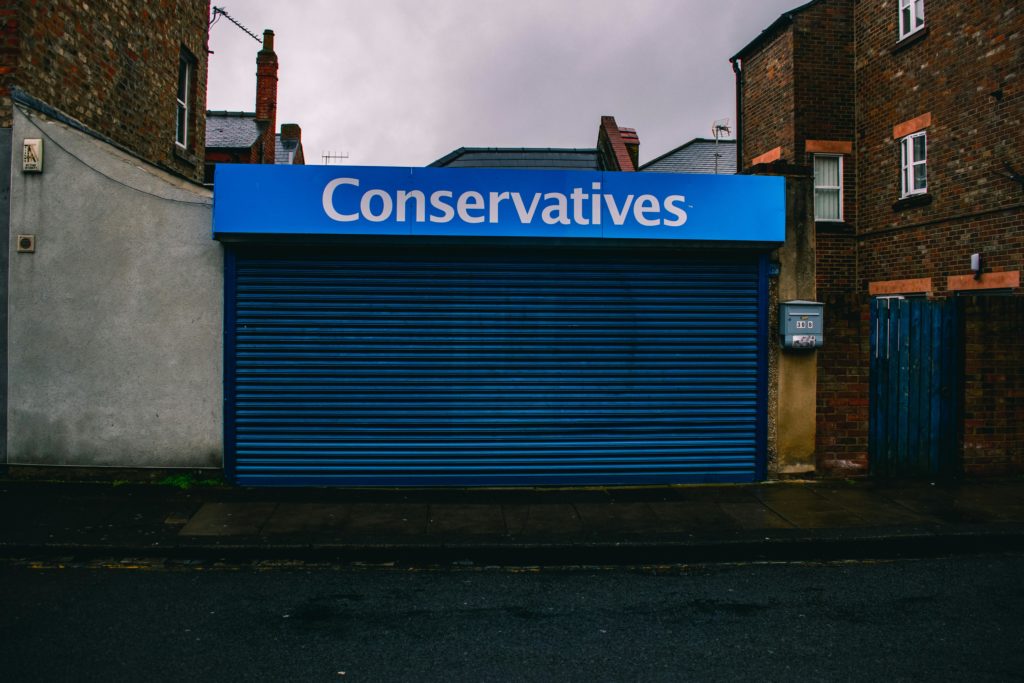
By Dr Jacob Salder, Department of Management, Birmingham Business School
I’m sure the past week has been difficult for Rishi Sunak. Losing almost half the incumbent Councillors standing for re-election will have stung, and the outcome of the mayoral elections more so. The Tees Valley offering a sole scion of hope here, in other cities the Tories polled barely more than predictably plucky also-rans. The final humiliation came as Andy Street lost the West Midlands by just a handful of votes.
These are some fairly concerning headlines for the electoral strategists at Conservative HQ. Following 2019’s fall of the Red Wall, it’s to be expected that attention around the next election would be on the North and the Midlands. Winning these seats, be they traditionally Labour such as Stoke-on-Trent North or more bellwether such as Nuneaton, will be critical if Keir Starmer is to form a majority Government.
It’s worth noting however that this is not the only interesting, and for Conservatives concerning, electoral shift.
Amongst the local authority areas which changed hands on 2nd May was Adur. A fairly innocuous coastal District of some 65,000 people, sandwiched between the seaside mecca of Brighton and less glamorous Worthing. Here, local representation has for 20 years been dominated by Conservatives. In 2004, they had 24 council seats (83%), in 2010 this was 25, and in 2022 held 19. Following this election that number fell to just eight, the party losing most seats they contested to the new Labour executive.
Now, I’m a seasoned champion of local government, but at the same time acknowledge those who question the broader meaning and relevance of such voting. Electing someone to manage the national economy and welfare state, to oversee military spending and engage in international diplomacy is a very different prospect to governing bin collections. But what happened in Adur is also evident across other areas of the traditionally Conservative South.
Looking solely at this election, the councils which changed hands were all losses for the Conservatives: Dorset to the Lib Dems, Havant to no overall majority. Rushmoor in Hampshire to Labour. Across the South-East it’s very difficult to find somewhere the Conservatives made notable gains.
But this is not just happening in 2024. In Adur’s neighbouring Worthing, a previous Conservative stronghold, the local council became Labour in 2022. The electoral shift was quite staggering considering as recently as 2016 there was no local Labour member. Whether this swing can unseat parliamentary candidates usually attaining 50%+ of the vote is less clear, but it’s notable one local MP will stand down at the forthcoming election.
What may be scant consolation here is the phenomenon is not so much a shift from Tory to Labour as simply away from the Tories. In Surrey, Elmbridge District has shown a recent swing toward the Lib Dems. Winchester shifted from Conservative to Lib Dem in 2019 following 15 years of largely Tory leadership. Again, both Conservative MPs are soon standing down.
All this as of now is conjecture. I reiterate the point that deciding who regulates your park opening hours and your fiscal and defence policies are very different considerations. But the inference is that the experienced, and expected, loyalty of South-East localities is no longer absolute for the Conservatives. So why is this happening?
My hypothesis is it’s a perfect storm of three factors. First is over-reliance on the active older population now coming to the end of its (voting) life. Second is the replacement of this demographic with more socially-liberal migration from metropolitan areas. Third, and perhaps most important, is the overall failures to address the real issues facing such communities.
Back in 2018 the Centre for Cities published a report listing the UK places with the lowest worker’s wages. Alongside the usual suspects – Barnsley, Doncaster, Wigan – the aforementioned Worthing was listed. This marks a major climbdown for a town which just 20 years previously was considered one of the nation’s most profitable business locations.
It is however indicative of the transition in such places in the ensuing years. Whilst previously prosperous built on the back of service plants, the de-integration and migration of such employment left limited options for residents. In place of the relative security and prosperity supported by local patronage from multi-national service functions, the labour market has shifted to more internal servicing dependent on two migrant industries: tourists and retirees. The implications on both prosperity and security have been significant.
The structural transition of the town’s economy however runs alongside the access to amenity afforded by these new occupations. To this extent, Worthing’s low wage workers are at a distinct disadvantage due to a cost of living underpinned by an overheated property market: on paper at least, a low wage worker in Worthing is notably poorer than one in Wigan. And at both the local and the national level, there is very little any Conservative can materially point at to illustrate their ability to address this issue.
The Conservatives are therefore faced with a pincer movement from disenfranchised dependents of an increasingly low-wage economy and imported socially-liberal sensibilities. And all this whilst their loyal home guard engages in one final retreat.
The fall of the Red Wall in 2019 was a bargained strategy, borrowing support on the hollow promises of a totemic Brexit. If the Blue Wall of the South falls, this might be something more permanent. Something from which the Conservatives struggle to recover.
The views and opinions expressed in this article are those of the author and do not necessarily reflect the official policy or position of the University of Birmingham.
